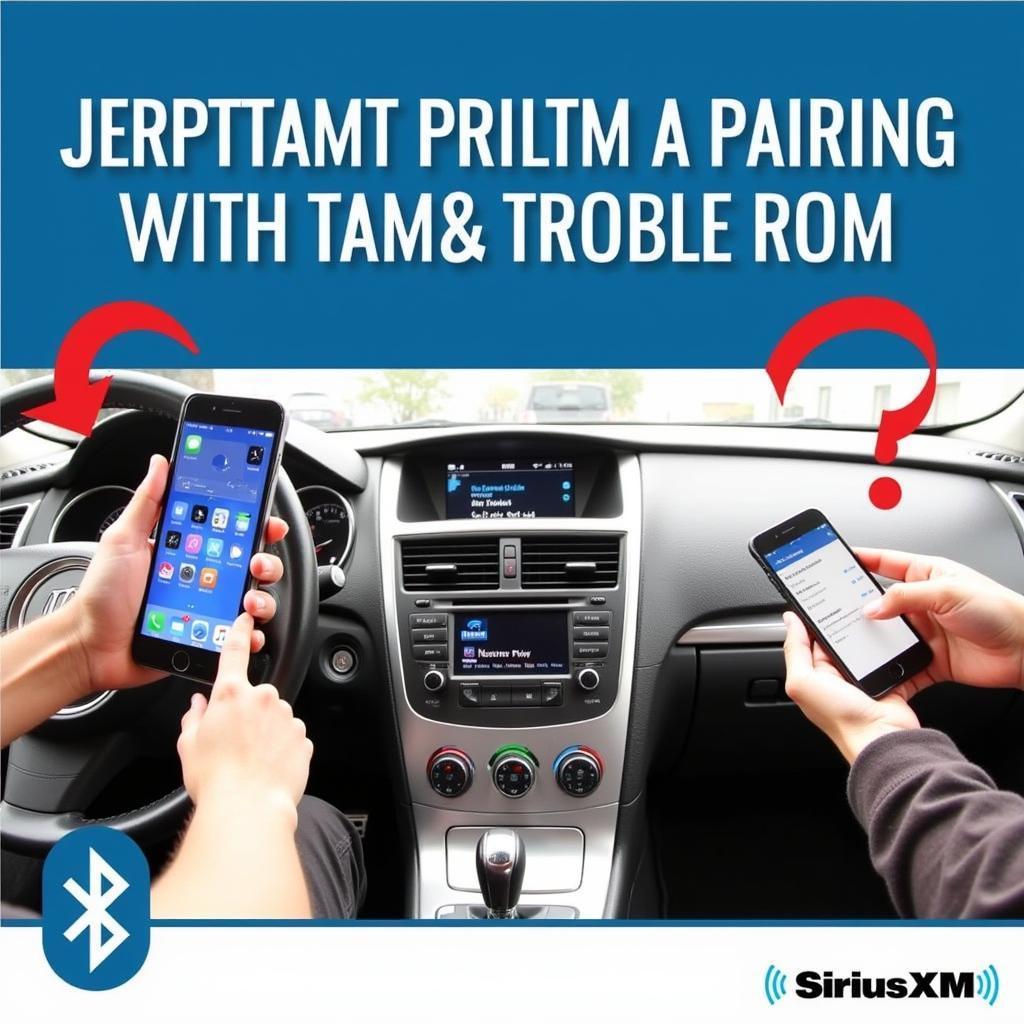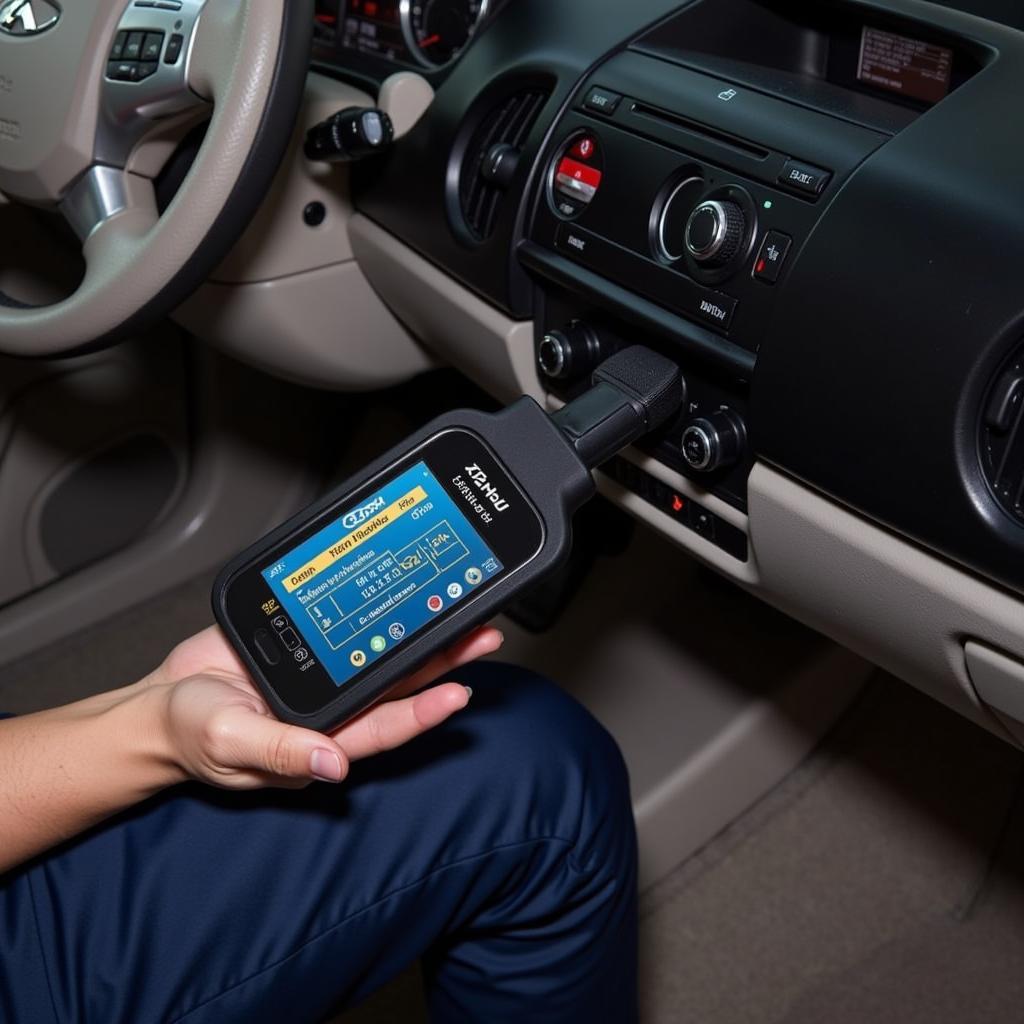Is your 1999 Honda CRV giving you trouble with the anti-theft system? You’re not alone! Many CRV owners from this model year experience issues, especially with the immobilizer system. Understanding how it works can help you troubleshoot problems and get back on the road faster.
Understanding Your CRV’s Anti-theft System
The 1999 Honda CRV uses an immobilizer system as its primary anti-theft measure. Here’s a simplified breakdown:
- Transponder Chip: Your CRV key has a small electronic chip (transponder) that transmits a unique code.
- Immobilizer Control Unit (ICU): Located near the steering column, the ICU reads the code from your key when you insert it.
- Engine Control Unit (ECU): If the ICU recognizes the key’s code, it sends a signal to the ECU, allowing the engine to start. If not, the ECU won’t receive the start signal.
Common Signs of Anti-theft System Problems
Here’s how to recognize if your CRV’s anti-theft system is acting up:
- The “Green Key” Light: This light on the dashboard usually flashes when the car is off and should turn off when you start the engine. If it stays on or flashes rapidly, there’s a problem.
- Engine Cranks But Won’t Start: This is a classic sign that the immobilizer isn’t recognizing your key, and thus, the ECU isn’t getting the signal to start the engine.
Troubleshooting Your 1999 CRV Anti-theft System
While it’s best to consult a qualified mechanic for in-depth diagnostics, here are some things you can try yourself:
1. Check Your Key Battery
Believe it or not, a weak battery in your key fob can sometimes interfere with the transponder signal. Replacing the battery is a simple and inexpensive fix worth trying first.
2. Try a Spare Key
If you have a spare key, try using it. This will help you determine if the problem lies with the key itself. If the spare key works, the transponder chip in your original key might be faulty and need replacing.
3. Inspect the Ignition Cylinder
Sometimes, a worn-out or dirty ignition cylinder can prevent the immobilizer from reading the key’s code correctly. Inspect the cylinder for debris or damage. Cleaning the cylinder or, in some cases, replacing it might be necessary.
4. Check for Electrical Issues
Loose connections or damaged wiring around the ICU, ECU, or ignition switch can also disrupt the anti-theft system. Carefully inspect these areas for any visible issues. If you’re not comfortable working with car electronics, it’s best to leave this step to a professional.
When to Consult a Professional
If the above steps don’t resolve the issue, it’s crucial to consult a qualified auto electrician or a Honda dealership. They have the specialized diagnostic tools and expertise to pinpoint the problem accurately.
Advanced diagnostic tools like those offered by Cardiagtech can be incredibly helpful for diagnosing complex electrical issues in vehicles like your 1999 Honda CRV.
FAQs About 1999 Honda CRV Anti-theft Systems
Q: Can I bypass the immobilizer system entirely?
A: While it’s technically possible, it’s highly discouraged. Bypassing the immobilizer system compromises your vehicle’s security, potentially making it an easy target for theft.
Q: How much does it cost to replace a faulty immobilizer system?
A: The cost can vary significantly depending on the specific component needing replacement and labor costs in your area. It’s always best to get a quote from a reputable mechanic.
Q: Can aftermarket car alarms interfere with the factory immobilizer?
A: Sometimes, aftermarket installations can cause conflicts with the factory system. If you’ve recently had an alarm installed, consider disconnecting it temporarily to rule out any interference.
Need Further Assistance?
Dealing with car trouble is never fun, especially when it involves complex electronics like your anti-theft system. Remember, safety and a proper diagnosis are paramount. If you’re unsure about any step, consult a professional.
Contact CARDIAGTECH today for expert advice and top-quality diagnostic solutions for your vehicle.


